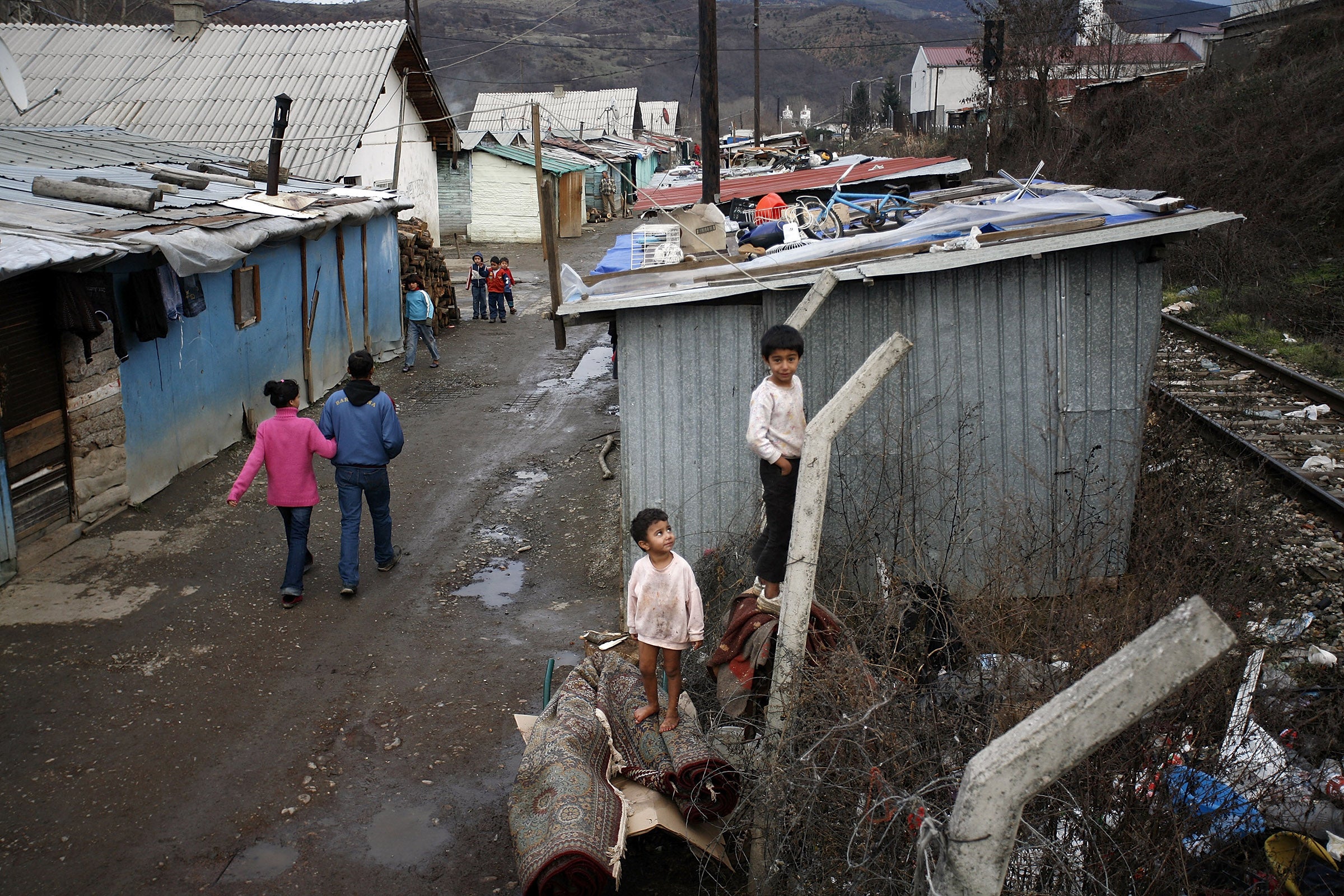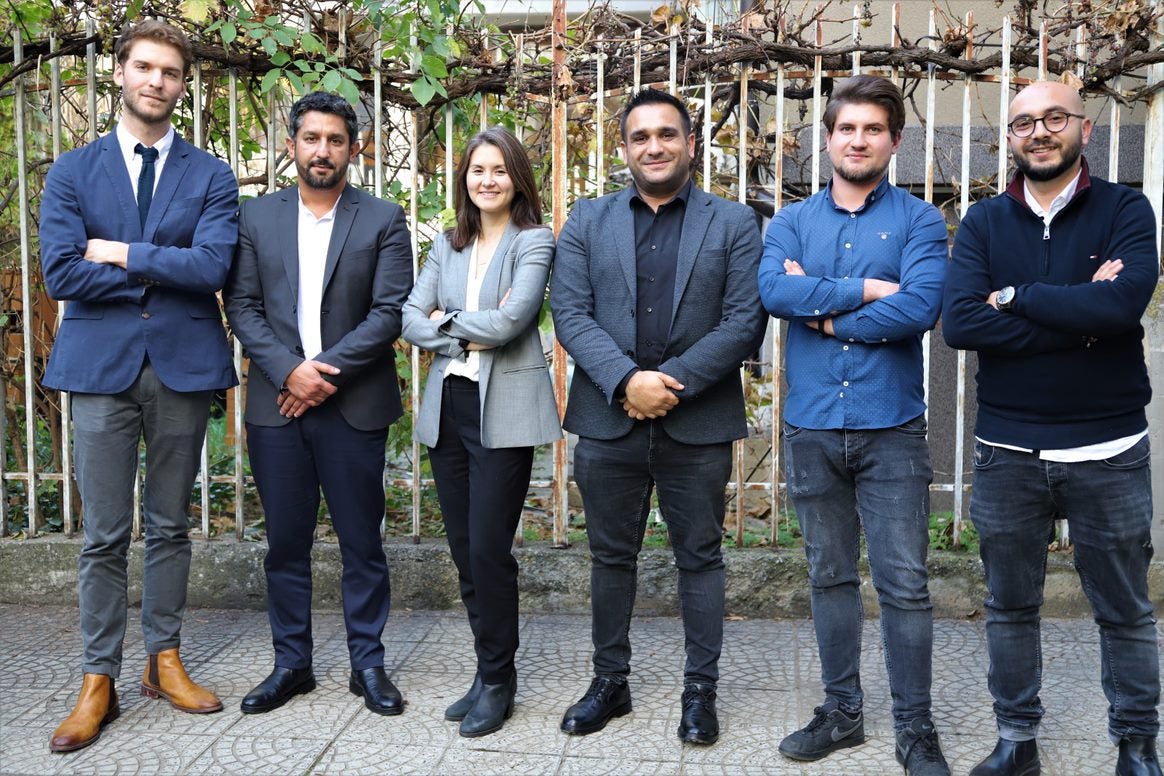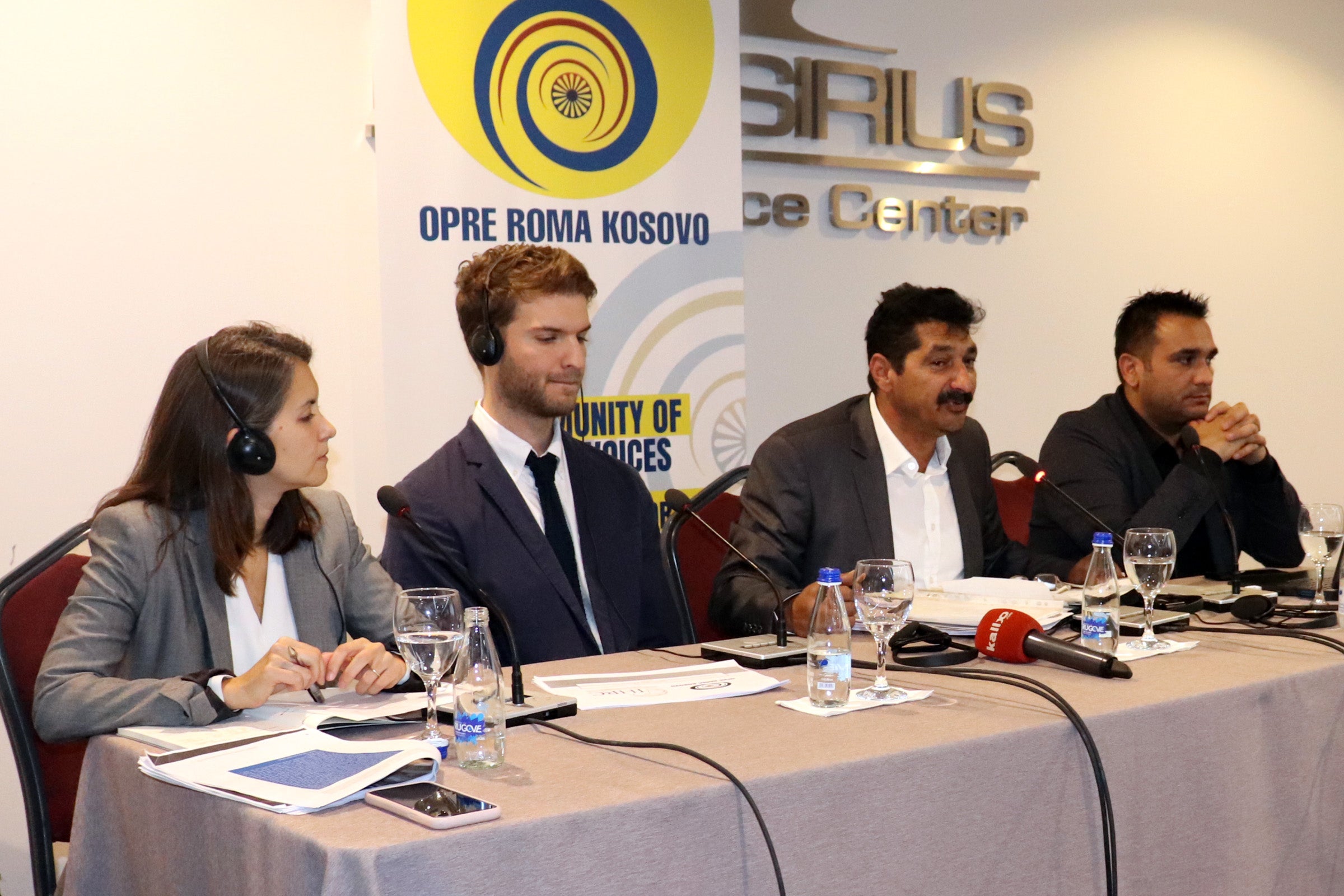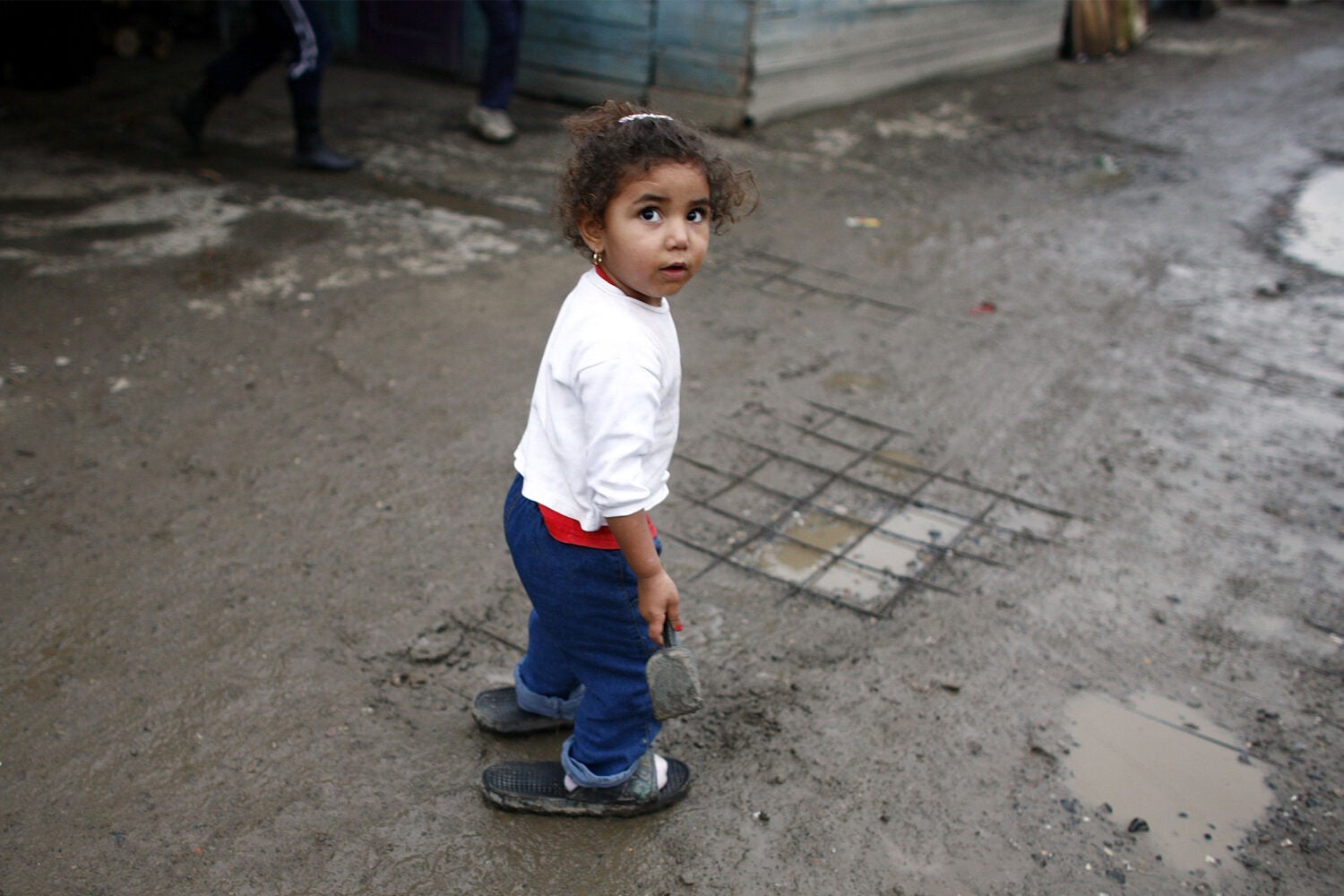Last November, Harvard Law students with the school’s International Human Rights Clinic travelled to New York and Kosovo, under the direction of Clinical Instructor Beatrice Lindstrom, to hold the United Nations accountable for placing hundreds of displaced Roma in housing where they were exposed to lead poisoning.
Under the U.N.’s watch in Kosovo, more than 600 Roma were housed near toxic slag heaps, causing illness and death from the highest levels of lead ever recorded in humans.
A report compiled by Lindstrom and her students determined that the U.N. had failed to act upon its own human rights panel’s findings that the organization owed reparations to Roma communities.
Lindstrom became aware of the situation more than a decade ago, when she was working on a related case of U.N. peacekeepers causing a cholera outbreak to Haiti. “When I came to the clinic in 2019, this was an issue that I wanted to take up,” she said. “I had seen directly the ways in which the U.N.’s immunity prevents victims from being able to seek justice when they are harmed by U.N. operations.”
One of her students at the time, Nathalie Gunasekera ’21 was drawn to this issue through previous work in the Balkans. “Together, we developed this idea that we would try to focus attention on the ongoing need for remedies and use our platform here to be able to draw attention to the ongoing needs on the ground in Kosovo,” Lindstrom said.

Gunasekera, who is now a law associate at the firm of Gibson Dunn, recalled that learning of the Kosovo situation was an eye-opener. “I had worked in Sarajevo and Albania and had traveled to Kosovo, and I was familiar with the politics. Yet I had never heard of the situation before, even after working in the region for years. It was shocking to me that this could happen in the middle of Europe, just a one-hour flight from Zurich, and their plight was just not being reported on. Yet it was such a gross human rights violation, that’s what attracted me to the project.”
Lindstrom and Gunasekera began working on the report after initial plans to visit Kosovo fell prey to the arrival of COVID. “We thought we could make ourselves useful by shedding light not only on the human suffering, but also the wild goose chase that the U.N. sets its victims on.”
The two trips last November were carefully orchestrated to make the greatest impact. Lindstrom first traveled with Jake Soria ’24 to Kosovo, where they presented the report with their partner team, the Pristina-based Opre Roma Kosovo, a Roma empowerment movement. Two weeks later, Anna Bower ’23 and Scarlett Park ’24 joined Lindstrom in New York to present their findings to U.N. member states.


When the report was presented in Kosovo, members of the affected community had a rare chance to make their voices heard. “One of the camp organizers spoke, and there was an open mic with a couple of parents taking the floor. I think it was important for them to speak directly both to representatives from the government who were there, but also to the media afterwards and to the international community more broadly,” said Lindstrom.
They also met with local and United Nations officials in Kosovo and with families of the affected communities. And they made their case on regional television and newspapers. Meeting with the families was particularly enlightening, said Soria.
“We explained the purpose of the report and ways that we thought we could help. And we asked what their main concerns are, and what their main demands are in terms of justice,” he said. “As a student here you read about shocking things every day, but it’s quite divorced from the reality of peoples’ lived experiences. In Kosovo, we met with community leaders whose kids had been impacted by lead poisoning. They have thorough documentation of the lead that was in their systems, and it was shocking and jarring to see they’d been left behind by the international community. They’ve been through so much, yet they’re so interested in the pursuit of justice — It was really invigorating for someone like me who’s interested in human rights work.”
Lindstrom, Park, and Bower’s trip to New York later that month was “a strategic move,” said Park. “We hoped to leverage some of the momentum, the media coverage, from the in-person launch in Kosovo in order to draw attention to this issue, which has been long standing and long ongoing.”
The report made several specific recommendations to the U.N. One was to issue an apology; a statement had been drafted in 2017, but it was abandoned when the U.N. had a change in leadership. Another recommendation was to revisit a trust fund that was set up in the wake of the tragedy, but which had so far received only a single donation.
The team is currently working on an op-ed piece to follow one they published in Prishtina Insight in November. Meanwhile, their advocacy work continues. “Putting our two trips together was a very ambitious strategy, but we made it happen,” Bower says. “From an advocacy perspective, it was a big deal. When we took our advocacy to the U.N., it was really helpful to say that we had boots on the ground in Kosovo. That set us up for getting an even stronger movement going and really building some momentum.”
Want to stay up to date with Harvard Law Today? Sign up for our weekly newsletter.
